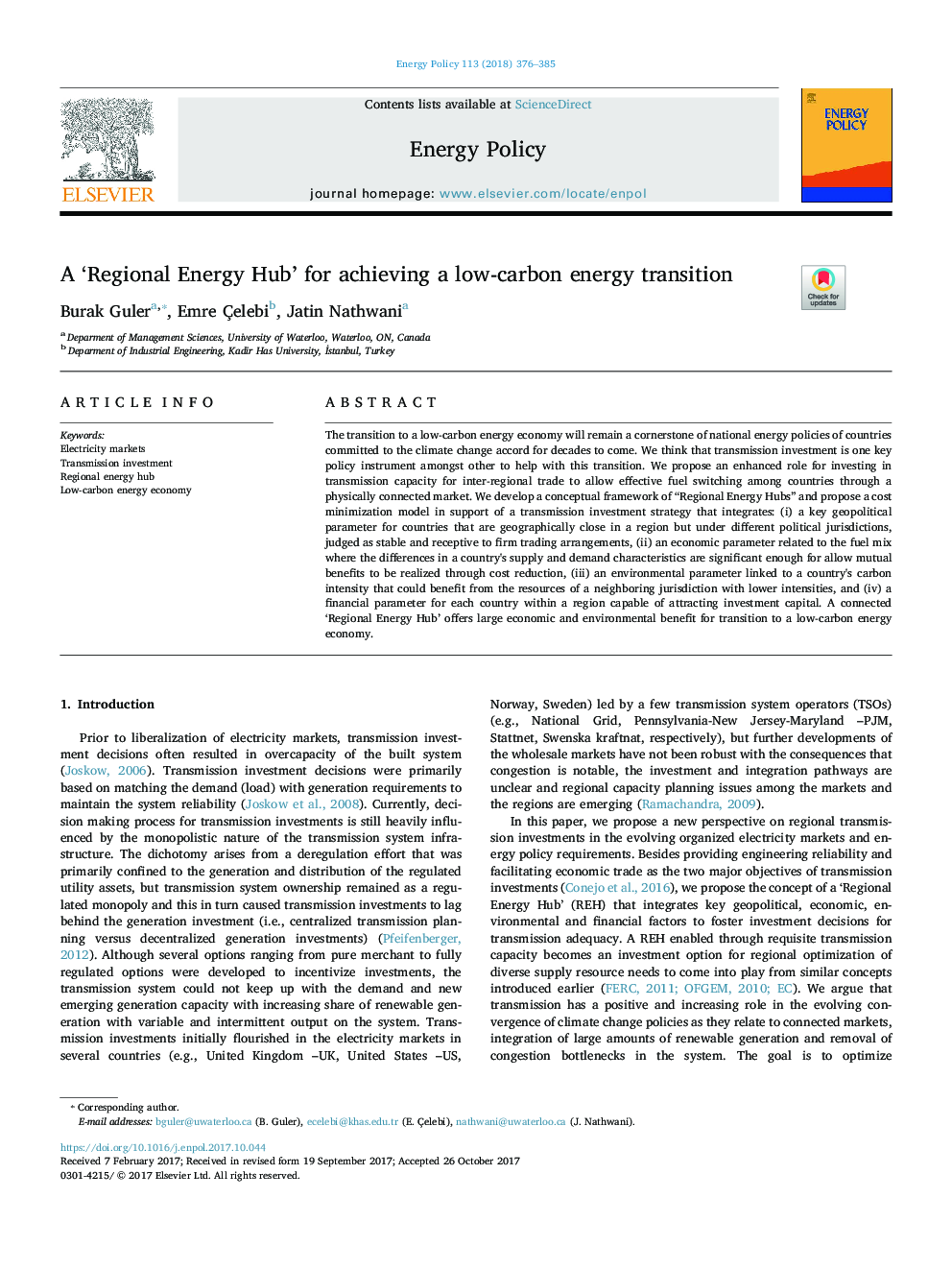| Article ID | Journal | Published Year | Pages | File Type |
|---|---|---|---|---|
| 7397767 | Energy Policy | 2018 | 10 Pages |
Abstract
The transition to a low-carbon energy economy will remain a cornerstone of national energy policies of countries committed to the climate change accord for decades to come. We think that transmission investment is one key policy instrument amongst other to help with this transition. We propose an enhanced role for investing in transmission capacity for inter-regional trade to allow effective fuel switching among countries through a physically connected market. We develop a conceptual framework of “Regional Energy Hubs” and propose a cost minimization model in support of a transmission investment strategy that integrates: (i) a key geopolitical parameter for countries that are geographically close in a region but under different political jurisdictions, judged as stable and receptive to firm trading arrangements, (ii) an economic parameter related to the fuel mix where the differences in a country's supply and demand characteristics are significant enough for allow mutual benefits to be realized through cost reduction, (iii) an environmental parameter linked to a country's carbon intensity that could benefit from the resources of a neighboring jurisdiction with lower intensities, and (iv) a financial parameter for each country within a region capable of attracting investment capital. A connected 'Regional Energy Hub' offers large economic and environmental benefit for transition to a low-carbon energy economy.
Related Topics
Physical Sciences and Engineering
Energy
Energy Engineering and Power Technology
Authors
Burak Guler, Emre Ãelebi, Jatin Nathwani,
